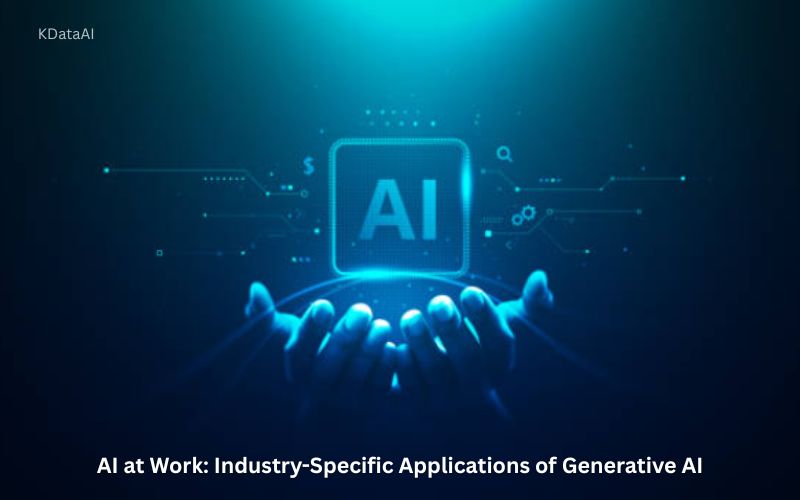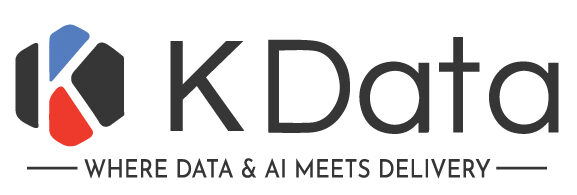
The world of work is transforming at an unprecedented pace, and a significant driver behind this change is generative AI. From automating mundane tasks to revolutionizing decision-making processes, the impact of AI on various industries cannot be overstated. It’s not just about data analytics anymore; it’s about leveraging that data in intelligent ways to create solutions tailored for specific sectors.
As businesses strive for efficiency and innovation, they are integrating AI technologies into their operations like never before. Whether it’s healthcare or manufacturing, the applications of generative AI are reshaping how we think about productivity and creativity in the workplace.
Let’s dive into some industry-specific applications of generative AI and explore how these advancements are enhancing workflows across different sectors. Get ready to discover how cutting-edge technology is redefining what it means to work smarter!
Healthcare and Pharmaceuticals
In healthcare and pharmaceuticals, generative AI is making remarkable strides. It enhances drug discovery by analyzing vast datasets to identify potential compounds faster than traditional methods.
AI algorithms can simulate biological interactions, predicting how new drugs will react in the human body. This not only speeds up research but also reduces costs significantly.
Patient care is another domain benefiting from this technology. AI-driven chatbots are providing immediate responses to patient inquiries, freeing up time for healthcare professionals to focus on critical tasks.
Additionally, personalized medicine is becoming a reality through data analytics. By examining individual genetic profiles, AI helps tailor treatments specifically suited to patients’ needs.
Generative AI tools are also streamlining administrative processes like billing and scheduling, improving overall efficiency within medical facilities. The future of healthcare looks promising with these advancements paving the way for more effective solutions and better patient outcomes.
Financial Services
Generative AI is transforming financial services in ways we never imagined. With its ability to analyze vast amounts of data, institutions can now make smarter investment decisions.
Risk assessment has also seen a significant boost. Algorithms can predict market fluctuations and identify potential threats more accurately than traditional methods. This helps firms safeguard their assets and improve customer trust.
Customer service benefits greatly from generative AI as well. Chatbots powered by this technology provide instant assistance, answering queries around the clock. They enhance user experience while reducing operational costs.
Fraud detection is another crucial area where AI shines. By analyzing patterns in transaction data, it quickly spots anomalies that may indicate fraudulent activity.
Financial advisors are leveraging these tools to create personalized investment strategies for clients, ensuring tailored solutions based on individual goals and risk tolerance. The future of finance looks promising with such innovations at play.
Manufacturing and Industrial Operations
Generative AI is reshaping manufacturing and industrial operations in remarkable ways. By analyzing vast datasets, AI models can predict equipment failures before they occur. This proactive approach minimizes downtime and enhances productivity.
Moreover, generative design algorithms create optimized product designs that are not only innovative but also cost-effective. Manufacturers can explore countless variations quickly, enabling them to choose the best option efficiently.
Supply chain management benefits significantly too. Data analytics helps identify bottlenecks and inefficiencies across the supply chain. With real-time data insights, companies can adjust schedules or inventory levels dynamically.
Quality control processes have become smarter as well. AI systems analyze production data to detect anomalies in real time, ensuring higher standards of quality without sacrificing speed.
These advancements signal a shift towards more intelligent operations where decision-making is driven by precise data-driven insights rather than guesswork or intuition.
Retail and E-commerce
Generative AI is reshaping the landscape of retail and e-commerce. By analyzing vast amounts of data, it personalizes shopping experiences for customers like never before.
Imagine browsing an online store and receiving product recommendations tailored specifically to your tastes. This isn’t a fantasy; it’s the power of data and AI in action. Retailers can now anticipate customer needs with remarkable accuracy.
Moreover, chatbots powered by generative AI are enhancing customer service. These intelligent assistants respond instantly to inquiries, guiding shoppers through their journey effortlessly.
Inventory management has also seen significant advancements. Predictive analytics helps retailers optimize stock levels based on trends, ensuring that popular items are always available while reducing waste from unsold goods.
Marketing strategies have become more sophisticated as well. With AI-generated content, brands can create targeted campaigns that resonate deeply with audiences, driving engagement and sales effectively.
Media, Entertainment, and Advertising
Generative AI is transforming the media, entertainment, and advertising sectors in remarkable ways. It enables creators to generate unique content quickly. From scriptwriting to video production, AI tools can assist with ideation and execution.
In advertising, brands leverage data analytics combined with AI to create hyper-targeted campaigns. This means ads can be tailored based on consumer preferences and behavior patterns. The result? Higher engagement rates and improved ROI.
Streaming platforms are also using generative AI for personalized recommendations. By analyzing user data, these platforms suggest shows or movies that match individual tastes.
Moreover, virtual influencers powered by AI are making waves in brand marketing. They offer a fresh approach without the complexities of human involvement while still resonating with audiences through relatable personalities.
The synergy between creativity and technology continues to shape how we consume content today.
Technology, Software Development, and Telecommunications
Generative AI is revolutionizing the technology landscape. Its ability to analyze vast datasets accelerates software development cycles like never before. Developers can quickly generate code snippets, reducing manual tasks and minimizing errors.
In telecommunications, AI enhances network management and customer service. Intelligent algorithms predict outages and optimize bandwidth usage in real-time. This leads to improved user experiences across platforms.
Additionally, generative AI assists in designing more intuitive interfaces. By analyzing user behavior data, it creates personalized features that resonate with individual preferences.
With advancements in natural language processing, chatbots have become more sophisticated too. They handle queries with human-like responses, making support seamless for users.
The integration of AI tools not only streamlines workflows but also fosters innovation within teams. With enhanced collaboration capabilities, businesses are positioned to tackle challenges head-on while remaining agile in a fast-paced market environment.
Energy, Oil & Gas
The energy sector, particularly oil and gas, is experiencing a transformative wave driven by generative AI. Companies are leveraging data analytics to optimize exploration and production processes. Advanced models analyze geological data, predicting the best drilling locations with impressive accuracy.
Predictive maintenance powered by AI helps reduce equipment downtime, saving both time and resources. By analyzing historical performance data alongside real-time inputs, firms can foresee potential failures before they occur. This proactive approach enhances productivity while minimizing operational costs.
Generative AI also plays a pivotal role in streamlining supply chain management within the industry. By simulating various scenarios based on market trends and consumer demand, businesses can make informed decisions that align inventory levels with actual needs.
Moreover, sustainability is becoming increasingly vital for energy companies. Generative AI assists in modeling carbon emissions reduction strategies effectively—evaluating different technologies or practices to achieve environmental targets without sacrificing profitability.
As this sector continues to embrace innovative solutions through data and AI applications, we witness a significant shift toward efficiency and sustainability initiatives that may reshape its future landscape entirely. The integration of these technologies ensures not only progress but also resilience amid evolving global challenges.
Generative AI is not only automating routine tasks but also enabling new business models and value creation across industries. Its impact is expected to grow, with significant economic value projected in sectors such as retail, banking, high tech, and life sciences. As adoption increases, organizations that effectively integrate generative AI into their workflows will likely gain a competitive edge in innovation, efficiency, and customer engagement.
